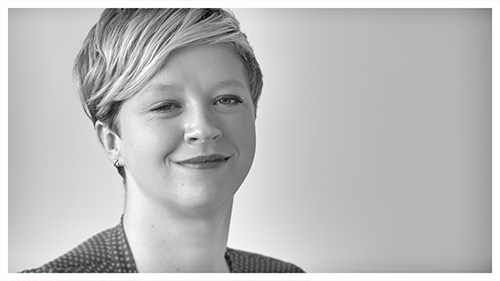Articles of Interest
The importance of “S” in the ESG equation
In recent years, Stanford University research teams[1] have identified multiple reasons for the increase in social risks, including reputational risk. The rise in the degree of reputational risk is due in part to the proliferation of social networks, which facilitates and accelerates the dissemination of information, and Gen Y’s heightened sensitivity to delicate situations that were once tolerated or ignored.
Therefore, adhering to the values of equity, diversity and inclusion (EDI), fairness or employee well-being allows organizations to stand out, whereas failing to take them into consideration may harm their reputation. The public expects a company to generate beneficial effects for society, and its actions are evaluated according to the impact they have on all stakeholders.
A quality organizational culture for better performance
An organizational culture aligned with core values is one of the success factors of a high-performing company. It attracts and retains talent and clients who share these same values. Gen Z and Y also place greater importance on EDI than their predecessors.[2]
The perception that an organization is a “good corporate citizen” influences the financial decisions of consumers and shareholders, while contributing to employees’ sense of belonging and job satisfaction. Moreover, employee involvement in corporate social responsibility has a substantial effect on the company’s financial performance.
A study published in 2023 shows that artificial intelligence and natural language processing can be used to quantify the effect of employee sentiment toward management on the financial performance of a company. The analysis revealed that a 1% increase in the sense of trust toward management raised a company’s market value and turnover by close to 0.75%.
A range of indicators to measure corporate culture
Besides employee comments on job search sites, there are other ways to measure a company’s culture and its contribution to strong long-term performance. Some indicators, such as the absenteeism rate, the proportion of positions filled through referrals, top talent turnover or the internal-external recruitment ratio, are specific examples of employee satisfaction.[3]
In addition, the measurement of certain indicators can show that a firm has built a truly inclusive culture that promotes diversity. One concrete example is the Gartner Inclusion Index, which measures employee sentiment based on a specific definition of inclusion. The metrics include perception of fair treatment of talent contributing to the firm’s strategic objectives, respect for differences of opinion, employees’ psychological safety, confidence in the firm’s communications, sense of belonging and executive diversity reflective of the diversity of all less experienced staff.
In terms of occupational health and safety, the number of accidents or work stoppages, cases of burnout and harassment complaints are also key indicators of the quality of an organizational culture. For example, a high burnout rate may suggest that employee well-being is secondary, which impairs engagement and likely the firm’s financial performance in the long run.
Strong ESG integration for proper risk management
Since the war in Ukraine, geopolitical risks, companies’ independence from the Russian government and the repercussions for populations have been at the centre of discussions surrounding investment in emerging countries, as Russia and Ukraine are considered undeveloped from an investment perspective.
In spring 2022, the sustainable investing and stock market experts of Normandin Beaudry met with over thirty managers specializing in emerging countries to ask them questions and try to understand the scope of these risks in terms of sustainable investment for these countries, which historically have had more issues related to human rights, transparency and good business practices.
These discussions led to three main findings:
- According to the assessment criteria, fewer than 20% of managers followed all good practices when it came to incorporating ESG factors and geopolitical risks into their management processes.
- Of that 20%, over 80% of managers had no or less-than-market exposure to companies established in Russia before the start of the war. This shows that a manager who widely incorporates ESG and geopolitical risks is typically better positioned to mitigate the risks.
- A large majority of managers spokeabout the influence of investors by mentioning that many organizations in emerging countries use managers’ global expertise to access corporate best practices.
Managers’ integration of social factors is crucial to managing the risks of an investment structure and even more vital for higher-risk asset classes.
Silo management does little for ESG
Companies have a critical role to play in addressing the environmental, social and governance challenges our world faces. More and more, they are being required to be transparent and act like good corporate citizens, and the social challenges of our society should not be underestimated.
Social and governance issues as well as climate change are all ultimately interconnected, and using them at different levels makes it possible to minimize the blind spots that could influence corporate performance or our society’s stability. Take, for instance, the mining companies that have been established in Canada’s North for years. Their departure due to environmental concerns could have devastating effects on the social fabric of many communities. That is why organizations and investors must take into account the effects of business activities on all those involved (clients, employees, shareholders and society). This means proactively examining the risks and opportunities tied to their environmental, social and governance impact to implement optimization strategies because companies that effectively manage ESG-related risks will be more likely to stay profitable over the long term.
[1] Blindsided by Social Risk: How Do Companies Survive a Storm of Their Own Making? https://corpgov.law.harvard.edu/2020/08/10/blindsided-by-social-risk-how-do-companies-survive-a-storm-of-their-own-making/
[2] Ibid
[3] KPI Examples for Understanding your Culture https://strategy-training.com/kpi-examples-for-understanding-your-culture/
Raphaël Gariépy, M. Sc., CFA, Principal, Investment consulting

Raphaël has a background in actuarial science combined with a master's degree in finance. He has been a member of Normandin Beaudry Private Management team for over 10 years. A versatile advisor, he relies on his innovative expertise, developed with a wide range of clients (public and private sectors, pension plans and religious communities and wealthy families).
Raphaël is the head of the public equities research team. He is responsible for establishing investment beliefs for clients' equity portfolios as well as monitoring and tracking managers. Raphaël is also an expert and founding member of Normandin Beaudry's sustainable investing research team. He has helped build the tools for monitoring investment structures and implementing sustainable investment approaches with his clients.
Mélinda Bastien, ASA, Principal, Investment consulting

Mélinda has worked on Normandin Beaudry’s investment consulting and pension and saving teams since 2007. She has a wide range of experience in monitoring the performance of investment managers, and she has had the opportunity, over time, to serve clients of all sizes in many industries.
She helps organizations design, optimize and communicate their group savings plans. She works to reinvent traditional savings approaches to put employees’ financial health first. She is also the specialist in charge of the institutional sustainable investment team. Together with her clients, she develops and implements sustainable investment approaches that enable them to better identify the ESG risks in their portfolio but above all to seize new opportunities that will benefit the growing societal challenges of today and tomorrow.
Valérie Lacroix, MBA, Analyst, Investment consulting and Savings

Valérie holds a Bachelor’s degree in Management and an MBA in Finance with a special end-of-master’s project focused on Net Zero strategies for pension funds. She joined Normandin Beaudry’s team in 2021 as an analyst on the investment consulting team and joined the savings team in 2023.
Valérie is a dedicated member of the sustainable investment team, specializing in climate issues and regulatory frameworks. She assists some institutional clients in their sustainable investment approach, participates in the writing of educational articles and contributes to training sessions and conferences given by the team.